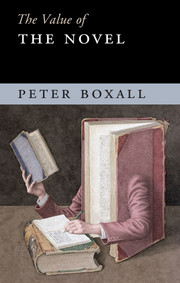Introduction: The Value of the Novel
Published online by Cambridge University Press: 05 September 2015
Summary
The ceaseless pursuit of data to quantify the value of any endeavour is catastrophic to true understanding.
Dave Eggers, The CircleWe are living now at a critical time in the history of our collective understanding of value. Across cultures, in a number of different, interlocking ways, and at local and international levels, one can see fundamental shifts occurring in the processes by which cultural value is produced and disseminated.
The first of these shifts has to do with the fate of what, in the humanities over the last half century, has been called ‘theory’. Somewhere in the middle of the last century our understanding of the role and the purpose of the humanities underwent a revolution, sparked by the emergence of ‘theory’ as a new critical discourse, which turned many of the assumptions that had driven our response to the arts on their head. Where the spokespersons for the arts in the earlier half of the century saw the humanities as the guardian of a set of (western) cultural values, a new generation of critics that came to prominence in the sixties and seventies (including figures such as Jacques Derrida, Roland Barthes, Michel Foucault and Julia Kristeva) developed a much more critical and sceptical approach to the very concept of value itself. For these later critics, the role of art was not to uphold any particular ideology or any given cultural, ethical or moral doctrine or creed; on the contrary, art and literature were valuable precisely insofar as they were able to set value aside.
- Type
- Chapter
- Information
- The Value of the Novel , pp. 1 - 16Publisher: Cambridge University PressPrint publication year: 2015



